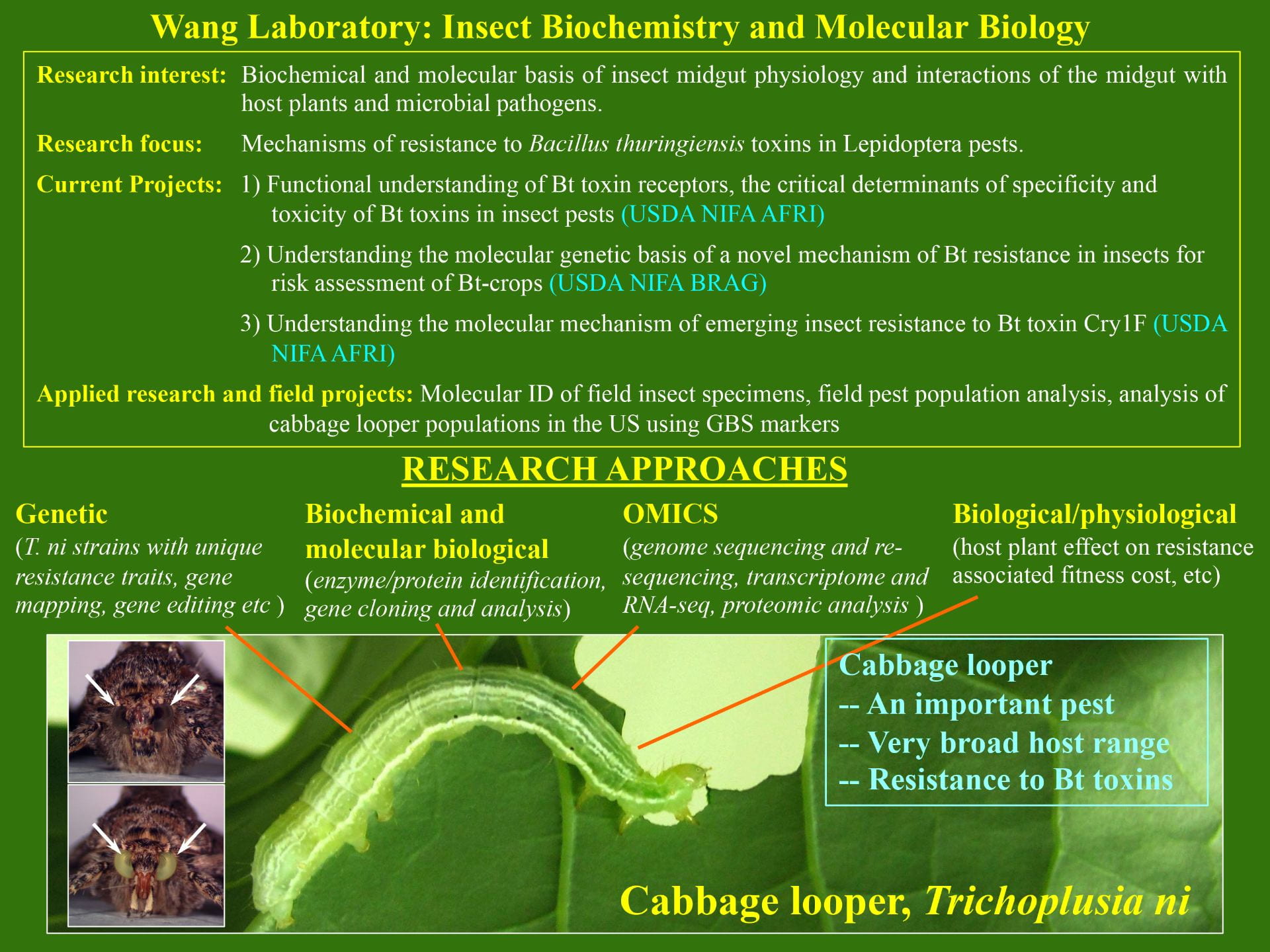Our research is centered on understanding the biochemical and molecular basis of insect midgut physiology and interactions of the midgut with host plants and microbial pathogens, using genetic, biochemical and molecular approaches and genomic and proteomic technologies.
- Understanding important midgut genes and their functions. To have a better fundamental understanding of the insect midgut biology, we take biological, genetic, biochemical and molecular approaches to extensively identify genes expressed in the midgut and analyze the functions of the midgut genes/gene products in a Lepidoptera pest, the cabbage looper, Trichoplusia ni. More recently, we are using whole genome sequencing, transcriptome sequencing and proteomic approaches to extensively identify and analyze midgut-expressed genes and their functions.
- Genetic manipulation of Trichoplusia ni for identification and functional studies of midgut genes. Insect pests are not model organisms for fundamental biological research. This hinders effective identification and functional analysis of molecular physiological mechanisms in insect pests. In recent years, there has been rapid progress in the development of genome engineering techniques for specific genetic editing in organisms. The genome editing technologies provide ideal tools for genetic manipulation of insect pests for functional analysis of genes playing important physiological roles and identification of important molecular target sites for development of novel insect control technologies. In our laboratory, we are conducting research to establish a gene editing system in the cabbage looper, Trichoplusia ni, and to use the genetic manipulation system to modify and functionally examine candidate genes of interest to understand molecular mechanisms in the insect midgut.
- Understanding molecular mechanisms of insect resistance to Bacillus thuringiensis toxins. The soil bacterium Bacillus thuringiensis (Bt) is the most successfully used biological insecticide in agriculture and public health. Current genetically modified insect-resistant crops are engineered with the toxin genes from Bt to confer insect-resistance. However, the molecular modes of action of various insecticidal Bt toxins in insects are not fully understood, and evolution of resistance to Bt toxins in insect populations threatens the long-term future of Bt-biotechnology for environmentally benign pest management. Understanding the molecular mode of action of Bt toxins and mechanisms of insect resistance to Bt toxins is a major focus of research in our laboratory.
Among our current projects in this research focus are: 1) studies on understanding the molecular genetic basis of resistance to Bt toxin Cry1Ac, which is the primary insecticidal toxin in current commercial Bt-crops to target Lepidoptera pests, using molecular genetic approaches; 2) our new project on understanding the molecular mechanism of Cry2Ab resistance, which was recently identified in our laboratory and known to be conferred by a novel mechanism yet to be understood, using genomic and proteomic approaches; and 3) our continuing research on understanding the mode of action of Bt toxins in Lepidoptera pests.
For graduate study and research opportunities in our lab, please contact Ping Wang at pingwang@cornell.edu.
We also have summer research opportunities for undergraduate students. For information and application, please contact Ping Wang (pingwang@cornell.edu), or visit the website of our Summer Research Scholars Program 2023 (http://scholars.pppmb.cals.cornell.edu/entomology-projects).

